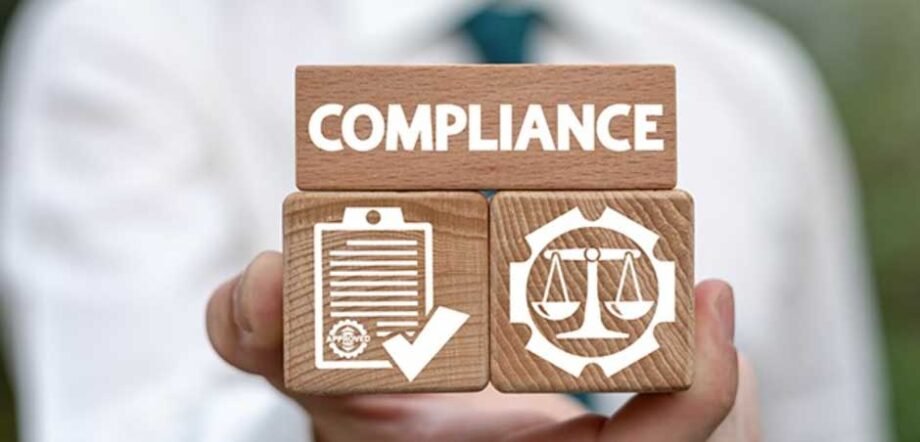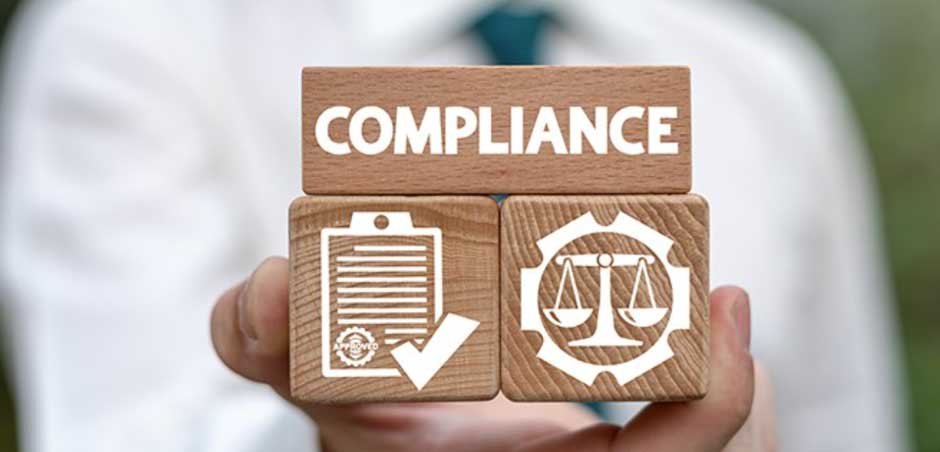Contents
Introduction: Embracing Responsible Business Practices
Welcome to the realm of Compliancia, where ethical business operations intersect with regulatory requirements to ensure integrity and transparency. In an era where adherence to legal standards and ethical conduct is imperative, implementing a robust Compliancia program has become indispensable for organizations of all sizes. Let’s delve into the significance, challenges, advantages, and future prospects of Compliancia in today’s rapidly evolving business landscape.
Defining Compliancia
Compliancia, commonly known as compliance, encompasses a set of rules, regulations, and standards that businesses must comply with to operate lawfully and ethically. It entails ensuring that a company’s practices align with industry-specific laws and guidelines governing its operations.
Beyond mere adherence to legal requirements, Compliancia also entails upholding internal policies and procedures aimed at fostering integrity and accountability within the organization. This includes areas such as data protection, anti-corruption measures, environmental sustainability initiatives, and more.
By establishing a comprehensive framework for Compliancia, businesses demonstrate their commitment to conducting operations responsibly while mitigating the risks associated with non-compliance. It serves as a guiding principle for decision-making processes across all organizational levels.
The Significance of Compliancia in Business
Compliancia plays a pivotal role in today’s business landscape by ensuring that companies adhere to laws, regulations, and ethical standards. By prioritizing compliance, businesses can cultivate trust with stakeholders and safeguard their reputation.
Maintaining compliance is not solely about avoiding penalties; it also enhances operational efficiency and minimizes risks. It fosters fair competition by creating a level playing field for all industry participants.
Businesses that embrace Compliancia are better positioned to navigate complex regulatory environments and adapt to evolving requirements. Compliance programs enable organizations to proactively address potential legal issues and demonstrate their commitment to responsible practices.
Furthermore, compliance promotes transparency within organizations, fostering accountability at all levels. By integrating compliance into their core values, businesses can strengthen relationships with customers, suppliers, employees, and investors.
Key Aspects of Compliancia
Compliancia encompasses various key aspects that businesses must consider to operate ethically and within legal boundaries. Understanding the regulatory requirements specific to the industry in which a company operates is crucial. This involves staying abreast of laws, policies, and standards impacting business operations.
Implementing robust internal controls and processes is another critical aspect of Compliancia. This includes establishing clear guidelines, conducting regular audits, and effectively monitoring compliance. Employee training on compliance matters is essential to foster a culture of ethics and integrity within the organization.
Maintaining accurate records and documentation is vital for demonstrating due diligence in compliance with regulations and providing evidence during audits or investigations. Additionally, having mechanisms for reporting violations or concerns confidentially promotes transparency and accountability.
Benefits of Implementing a Compliancia Program
Implementing a Compliancia program offers a myriad of benefits that extend beyond regulatory compliance. It helps build trust and credibility with customers, investors, and other stakeholders by showcasing a commitment to ethical practices and legal compliance.
Moreover, Compliancia programs streamline operations by establishing clear guidelines and procedures for employees to follow, reducing the risk of non-compliance and enhancing overall efficiency. Additionally, robust compliance measures mitigate potential risks such as fines, lawsuits, or damage to brand reputation.
Investing in Compliancia underscores a dedication to upholding high standards of integrity and corporate responsibility. This can attract top talent seeking to work for companies that prioritize ethics and transparency, thereby contributing to long-term business success and sustainability.
Challenges and Solutions in Achieving Compliancia
Achieving Compliancia presents challenges for businesses, particularly in navigating the complex landscape of ever-changing regulations and legal requirements across industries and regions.
Ensuring that all employees are well-informed and trained on Compliancia standards is another challenge. Misinterpretation or lack of awareness can lead to costly mistakes and penalties for non-compliance.
Implementing robust internal controls and conducting regular audits are essential solutions for overcoming compliance challenges. These measures help identify areas for improvement, mitigate risks, and ensure adherence to regulatory requirements.
Leveraging technology, such as compliance management software, can streamline processes, enhance monitoring capabilities, and provide real-time insights into compliance performance. Automation reduces human error and improves efficiency in meeting compliance obligations.
Proactively collaborating with industry experts, attending conferences, and staying updated on legislative changes are strategies to stay ahead of Compliancia challenges. Adopting a proactive approach is crucial for maintaining a strong culture of compliance within any organization.
Case Studies: Successful Implementation of Compliancia Programs
Successful implementation of Compliancia programs can significantly impact businesses. Let’s explore some compelling case studies where organizations have excelled in upholding compliance standards.
Company X, a global corporation, implemented a comprehensive Compliancia program across its departments, fostering a culture of compliance from top to bottom. This initiative enhanced transparency and accountability within the organization.
Another inspiring case study is Company Y, a small startup that prioritized compliance from its inception. By integrating automated compliance monitoring tools and conducting regular employee training sessions, they established themselves as a trusted entity in their industry.
These success stories underscore the importance of prioritizing Compliancia in business operations and provide valuable insights into best practices and strategies for implementation.
The Future of Compliancia: Emerging Trends and Technologies
The future of Compliancia is being shaped by emerging trends and technologies. Advancements in artificial intelligence and machine learning enable companies to leverage automation for enhanced compliance processes, real-time monitoring of regulatory changes, and proactive risk management.
Blockchain technology is instrumental in ensuring transparency and security within compliance frameworks. By utilizing blockchain for data storage and verification, organizations enhance trust among stakeholders while reducing the potential for fraud or tampering.
Moreover, as data privacy regulations tighten globally, businesses invest in robust cybersecurity measures to protect sensitive information. From implementing encryption protocols to conducting regular security audits, staying ahead of cyber threats is crucial for maintaining Compliancia standards.
Looking ahead, predictive analytics and big data integration will revolutionize how companies approach compliance management. By analyzing large datasets and identifying patterns, organizations can anticipate risks before they escalate into serious issues.
Conclusion: Embracing Compliancia for Responsible Business Conduct
In today’s dynamic and regulated business environment, prioritizing Compliancia is indispensable for organizations of all sizes. Implementing a robust Compliancia program not only safeguards businesses from legal risks and financial penalties but also fosters trust with stakeholders and enhances overall reputation.
By adhering to regulatory requirements, ethical standards, and internal policies, businesses create a culture of integrity and accountability. The benefits of a comprehensive Compliancia program include increased operational efficiency, reduced liability exposure, improved decision-making processes, and enhanced brand value.
While challenges in achieving Compliancia may arise, proactive measures such as investing in compliance technology solutions and conducting regular audits can help mitigate risks effectively. Learning from successful case studies provides valuable insights into best practices and strategies for implementation.
As businesses continue to navigate complex regulatory environments and heightened scrutiny, embracing emerging technologies and trends will be pivotal in shaping the future of Compliancia. By staying abreast of developments and adopting a proactive approach, organizations can effectively prioritize compliance initiatives and ensure responsible business conduct.





